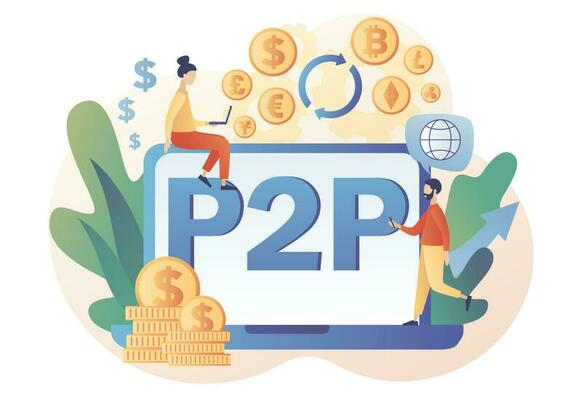The eLearning space in Malaysia is set for unprecedented growth, with the market expected to surge by over 200% by 2025, a trend significantly catalyzed by the COVID-19 pandemic.
For Malaysian business owners, this projection is promising, indicating an opportunity to enhance their operational capacities through Digital Learning in Malaysia.
As businesses swift through this expanding field, the integration of innovative learning trends becomes crucial.
Trends like mobile learning, microlearning, and the use of video content are already enhancing user engagement and will continue to be integral.
In this blog, we’re taking you through everything you need to know about the future of online learning and current trends and innovations.
What is Online Learning?
Online learning, often termed as e-learning, involves leveraging digital technologies to impart education beyond the conventional classroom boundaries.
This approach includes a variety of instructional strategies such as online courses, virtual classrooms, digital resources, multimedia content, and interactive modules. E-learning offers a lot of flexibility as it can be self-directed or guided by instructors, enabling students to engage with learning materials on their terms, from any location with internet access. Its growing popularity stems from its adaptability, ease of access, and its effectiveness in accommodating different learning preferences.
A Quick Glance at Future of Online Learning in Malaysia
The educational sector is witnessing a significant transformation driven by the demand for personalized e-learning solutions.
This shift is not merely altering the mode of knowledge transmission but is also improving the entire educational experience. As we delve deeper into an even digital time, bespoke e-learning developments are emerging as pivotal, providing customized, adaptable, and easily accessible learning options. These advancements signal the dawn of a new age in educational achievement.
Personalized Learning Journeys: Picture a learning system designed exclusively for you. Whether you’re a more visual learner or learn better with a certain set of references, Advanced technologies like Artificial Intelligence (AI) are refining online learning, adapting it to individual learning styles and needs.
Immersive Technologies: Imagine being transported into the heart of your study topics through Virtual Reality (VR) and Augmented Reality (AR), which offer immersive learning experiences that make education feel more real.
Intelligent Assessments: Testing is also becoming more sophisticated. Automated, adaptive tests provide immediate feedback and adjust difficulty to match learner proficiency, ensuring a tailored evaluation process.
Collaborative Learning Environments: The future of learning includes collective experiences. You’ll engage with peers, exchange ideas, and gain insights in a collaborative setting reminiscent of traditional classrooms, but better.
Enhanced Credential Verification: The integrity of certifications will improve with technologies like blockchain, ensuring that credentials are secure and verifiable, reducing fraud.
Global Educational Access: Digital learning in Malaysia and beyond is set to broaden educational reach, ensuring that every learner, regardless of their location or background, has access to quality education.
A Brief History of Online Learning
Early Beginnings
E-learning has roots stretching back to the 19th century, beginning with correspondence courses. In the 1840s, Isaac Pitman taught shorthand through posted letters, an early form of distance education. Advancements like the 1924 testing machine and B.F. Skinner’s 1954 “teaching machine” furthered these educational methods, allowing for more structured learning away from traditional classrooms.
The Transformation
The digital era truly began with the PLATO system in 1960, introducing computer-based training and setting the stage for online educational platforms. By the 1980s and 1990s, personal computers and the internet propelled the creation of virtual learning environments, eliminating traditional barriers to education. The 2000s saw businesses and individuals alike embracing e-learning for professional development and degree programs. Today, Digital Learning in Malaysia continues to advance, making education accessible and adaptable to everyone’s needs.
Top Online Learning Trends of 2024
Learning Experience Platforms (LXP)
A Learning Experience Platform (LXP) is an e-learning tool powered by AI, designed to enhance the learning experience by providing adaptive learning features. While traditional Learning Management Systems (LMSs) focus on structured training paths created by designers, LXPs offer a more dynamic approach by automatically suggesting content from a variety of sources, including blogs and existing LMSs.
LXPs excel in areas where learning is not compulsory, offering a flexible and user-centric approach that encourages lifelong learning. They utilize machine learning to refine content recommendations increasingly tailored to the learner’s job role, department, and skill needs, based on their usage patterns and preferences of similar users.
Mobile-First Learning
Mobile-first learning is quickly transitioning from a convenient option to a primary focus in online education. By the end of 2024, the mobile learning market is expected to reach a staggering $46.9 billion, fueled by a growth rate of approximately 26%.
This shift emphasizes the development of elearning mobile apps specifically designed for learning, enhancing user interaction and engagement through optimized mobile responsiveness.
A mobile-first approach not only facilitates smoother navigation and interaction within online courses but also significantly increases learner retention. On the other hand, for corporate training, it allows employees who are often away from desks to access training materials anytime and anywhere, boosting efficiency and convenience.
Cohort-Based Learning
Cohort-based learning is a dynamic educational approach where learners progress through a course collectively. This model combines synchronous and asynchronous methods to foster collaboration through group assignments and real-time interactions.
Courses in this format have definitive start and end dates, along with set deadlines for assignments, which heightens accountability and typically results in higher completion rates. This structured schedule helps students enhance their time management and workload organization skills.
A key strength of cohort-based elearning is its interactive nature, which not only keeps learners engaged but also allows for tailored instruction. Instructors can directly respond to student feedback and preferences, enriching the learning experience. Additionally, this model fosters a strong community feel, offering learners personalized attention and a deeper sense of belonging within the educational journey.
Subscriptions & Memberships
Subscriptions & memberships are increasingly favored by course creators who aim to establish sites that mimic the dynamics of social media platforms, but without the distractions. This model fosters a strong community among participants and also offers creators a reliable revenue stream through recurring payments.
Course creators can provide members with various access levels, featuring benefits like exclusive content, special discounts, and community forums. Effective management of a membership site demands continual effort from creators to keep the community active and engaged.
Regular updates, live events, and interactive sessions are essential to sustain lively interaction within the community. For many learners, the experience of being part of an engaged online community is significantly more fulfilling than participating in self-paced courses, making subscriptions & memberships a lasting trend in online learning environments.
Micro-credentials
Micro-credentials are becoming a prominent feature within E-learning Innovations in Education as they provide verifiable certifications after completing short courses or trainings. Often seen as mini-degrees or specializations, micro-credentials are valued for rapidly imparting critical job skills and competencies.
In academic contexts, these credentials can be transferred between institutions and contribute towards degree completion, enhancing their utility. In professional settings, they improve a resume significantly, with top resume templates now regularly including sections for showcasing these qualifications.
While there may not be standardized measures for assessing the knowledge gained, micro-credentials typically require completion of specific assignments to ensure learning objectives are met. This process provides tangible evidence of the skills and knowledge acquired, making micro-credentials increasingly sought after by professionals eager to advance their careers and broaden their skill sets.
Artificial Intelligence in Digital Learning
AI introduces personalized recommendations, advanced search features, and specialized tools for learners with disabilities, tailoring the educational process to individual needs.
For educators and content creators, AI can automate numerous tasks, including content translation, tagging, grouping, course assignments, and quiz creation. One of its standout functionalities is the ability to conduct thorough data analysis. Learning analytics powered by AI illuminate every aspect of course interaction and learner behavior, allowing educators to refine their offerings effectively. Google’s Gemini is a standout example of this.
Furthermore, through Natural Language Processing (NLP), a subset of AI, chatbots serve as virtual assistants. These chatbots respond to queries using information from a pre-set knowledge base, simplifying communications and supporting both learners and instructors in Digital Learning in Malaysia.
Conclusion:
The future of online learning in Malaysia looks exciting!
For business owners, this is more than just an opportunity, it’s quickly becoming an essential domain to tap into.
As we dive into new trends like AI and mobile learning, it’s clear: the time to adapt is now.
Embrace these changes and get ready to boost your business with a skilled, forward-thinking team.
We, at Segwitz, are dedicated to bringing your future a little closer to you and giving you that extra edge.
If you need help with your tech strategy or are planning on building an app to take your business to the next level, feel free to contact us.



